Follower Is An Urgent Film About Political Compliance
Harshad Nalawade's film tracks the senseless way social media trolls operate, fuelled by the misguided notion that unquestionable obedience is their greatest calling. Follower is about followers.
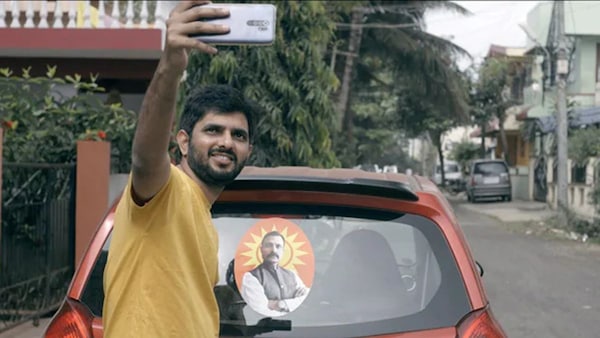
Still from Follower.
Last Updated: 12.08 PM, Mar 29, 2025
AN ANGRY MOB vandalises a public space. The premise is ransacked, chairs are upturned, and threats are issued: “Every action has a reaction”. They are seething over a remark made by a comedian about their political leader, standing in that place. Soon, social media is crammed with more threats and conspiracy theories, each linking the said comedian to extremists and sources of his funding to illegal sponsorship; he is tipped to be the unofficial spokesperson of the rival party. As days pass, speculations get rife; one party worker comes to a news channel and says he regrets nothing. “There should be a limit to humour”. Harshad Nalawade's Follower is about that person.
This might be technically misleading, but it is spiritually accurate. Nalawade’s astute and timely film is about the faceless trolls that appear to self-multiply and clog every pore of social media. His debut film tracks the senseless way they operate, fuelled by the misguided notion that unquestionable obedience is their greatest calling. Follower is about followers.
Follower is also about one follower: Raghavendra Pawar (Raghu Basarimarad), a resident of Belagavi, the contentious Marathi-majority district in Karnataka. Raghavendra, or Raghu as he is known to his friends, belongs to the dominant community but feels cornered. He is convinced that the city belonged to them in the past (situated at the border, Belagavi, has been part of Karnataka since states were restructured along linguistic lines under the States Reorganisation Act, 1956) and their fight for supremacy is only legitimate. To do his bit, Raghu works at some kind of IT cell where he, along with a few other men, post altered media and news to clamour support for their local Marathi leader. Instigated by one such video, a group of people kill Sachin (essayed by Nalawade himself), a Kannadiga YouTuber who was dispelling misinformation spread by the Marathi politician; soon Raghu is detained by cops.
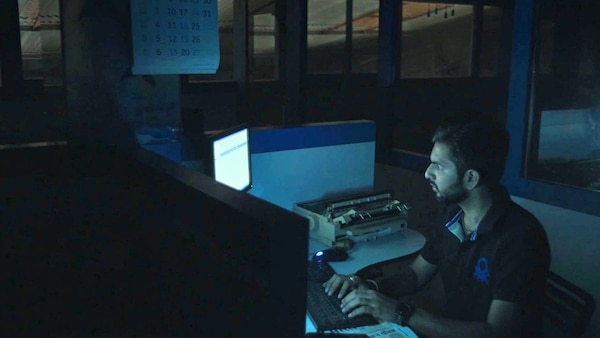
A man has died, and the culprit is arrested. There is a neatness to this resolution, bringing to mind a sense of an ending, but Follower opens with it. This flip amplifies Nalawade’s intent, which is less about upholding a social phenomenon to penalise it and more about treating it as a symptom of a larger malaise. The filmmaker opts for a similar inversion when Raghu, prone to being relegated to the background to underline the valour of someone like Sachin, is chosen to be the story's central character. The design undercuts the generic apathy granted to people like him with a keenness of attention reserved for protagonists.
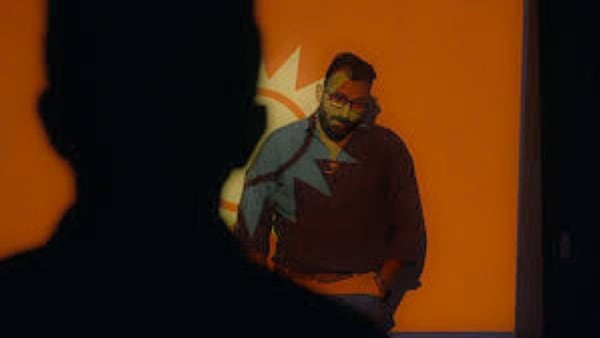
This is reflected in the way Nalawade has structured Follower. It opens with Sachin’s death, and as the timeline goes back to a month, details of Raghu’s life begin to emerge. He lives with his mother and runs a gift shop. His father has passed away, and he is estranged from his friends: Sachin and Parveen Mujawar (Donna Munshi), a single mother. He has no partner and is rejected by Parveen when he proposes marriage. His proposition reeks of a saviour complex, like the extent of his love can be measured by his willingness to marry a woman who already has a child. He extends a similar love to his community by wanting to save them and being gullible to stilted narratives peddled by politicians. His sense of purpose is so strong that he refuses to spend the money he earns from his job.
Once the text is outlined, Nalawade offers the subtext. It is a thoughtful framework that humanises someone like Raghu and puts them in a crowd. The implication is simple: If anyone could become Raghu, then someone like Raghu, who sits at a desk and spreads propaganda with no contrition, could be anyone. Post-interval, the timeline dates further back, and most details emerge. Sachin is his closest friend. Raghu is a graduate with a fledgling job and less income. After his father’s sudden demise, he is forced to run the gift shop—a detour that halts his life. Grievances start piling and soon they harden into misgivings. Earlier, he would call out his father on suspecting that discrimination was the reason for their financial stagnancy, but later, when Raghu’s prospects cease to look up, even his qualms transform into mistrust.
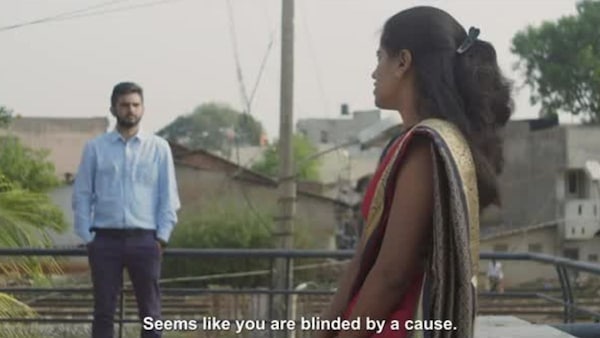
If the thematic arrangement of Follower hurtles towards a more realised portrayal of Raghu, then Nalawade too retains his compassion throughout. The narrative is infused with little but telling details that contextualise his change of faith. Raghu’s economic standing is in stark contrast to that of Sachin. The latter is rebellious because he can afford to be. He can rage about the ruling party’s control over food choices because his other worries are taken care of. The character is also crafted with genuine perceptiveness, where the inevitable duality of his left liberal politics leaps out. Despite his progressive outlook, he taunts Raghu about his job at the store. Even for Parveen, it is Raghu, not Sachin, who nurses her concern and remembers her delivery date. They all add up to a definitive reading the film purports: anyone can be a hero, but heroism is the calling of the privileged.
Nalawade lends a stifling loneliness to Raghu. He shoots him in long, unbroken shots as his face and slouched body remain in the frame and accrue resentment by the minute. This is Basarimarad’s debut work, and he brings an uncanny distinctness that can pass off as both commonplace and specifically sinister. The characters in Follower flit from Hindi, Marathi, to Kannada and each carries its own power dynamics. When Sachin and Raghu are friends, they speak in Marathi, pointing to an equal relationship. Ditto when Raghu goes to meet a prospective bride. But at the beginning, when Raghu is brought to the police station, the interrogations happen in Kannada.
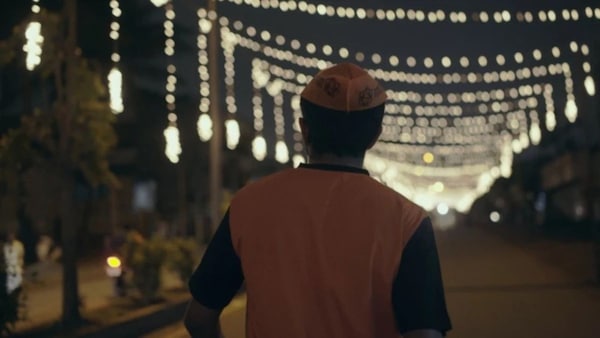
Although specific to a state, Follower is about the country we have to inhabit and the people we live with. The versatility is both its greatest merit and the biggest tragedy. But Nalawade also resists the easy trappings of judgement. If Follower follows a follower, it also tracks the thoughts accompanying them and trades curiosity for empathy. The more recurrent query of “who is the follower?” is replaced by a more urgent “what makes one a follower?”; the journey between the two questions is the film.

 Premium
Premium